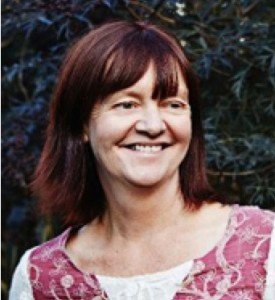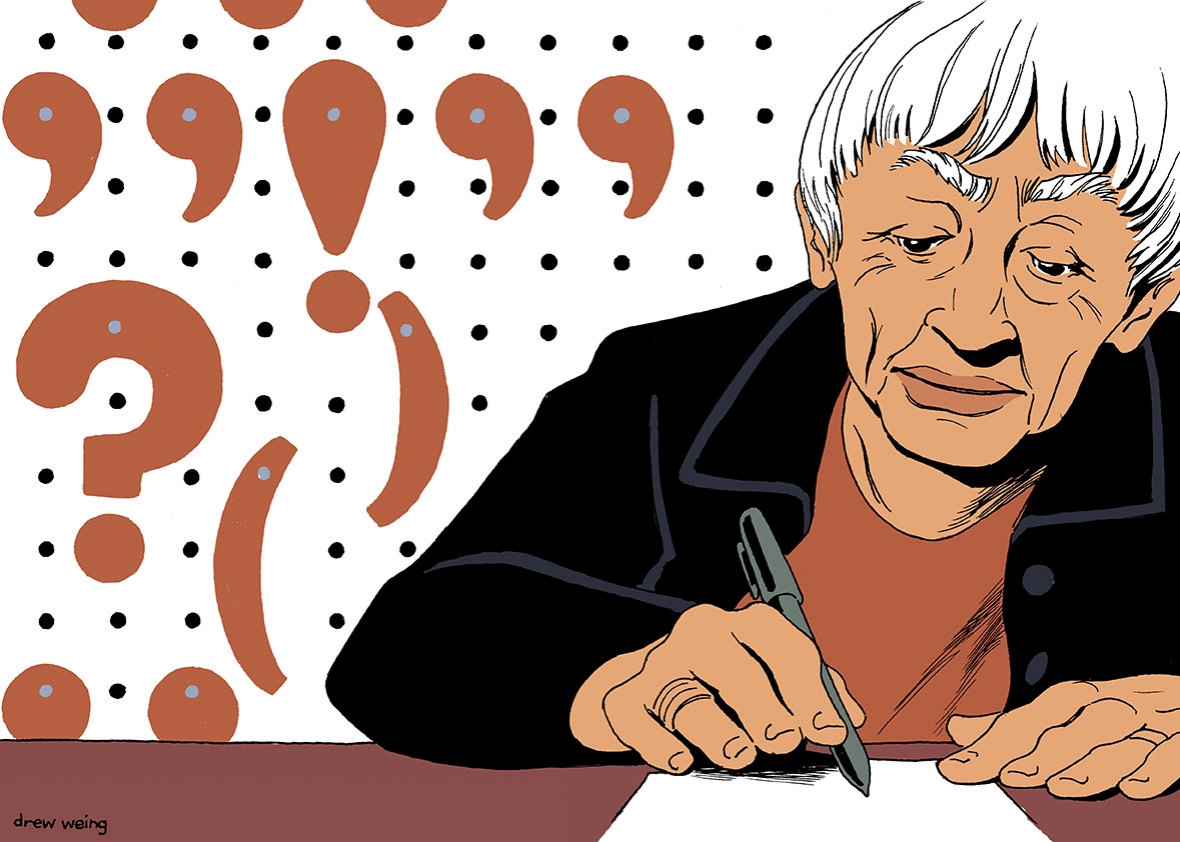Did You Know This?
By G. Miki Hayden
Instructor at Writer's Digest University online and private writing coach
firstwriter.com – Monday June 17, 2024
I was thinking about what to tell you from my many years of being in this writing game. Maybe you know a few of the following, or maybe not.
You need a Kindle, though perhaps you already have one. Good. This is important. I bought mine so many years ago I don’t remember the version and I need a new exterior cover. Oh well. The great thing is that these devices last and last.
I recall people in the old days saying they preferred books they could hold in their hands. Forget that. I recently asked for a copy of James Clavell’s Shogun from the New York Public Library. I received it more quickly than a book is generally sent when requested. I brought it back two days later and downloaded Part One on Amazon. The print version was too heavy and awkward to read. I spend about forty minutes a day reading when doing my various leg exercises while lying on the floor. I’m on Part Two now at the total cost of eighteen dollars for both parts and am making good use of my time.
Buying books for your Kindle isn’t just about ease of use, either. Generally, the reason is that Kindle books are not simply cheaper, but can be enormously inexpensive if you read in any particular genre. I’ve downloaded a few listed on BookBub or Read Freely to read later. I’ve gotten to be so…err…thrifty that I won’t pay more than zero dollars or ninety-nine cents for a book. Except for authors whose names you might know that go for maybe a dollar ninety-nine, nothing distinguishes the books—the blurbs make them all sound like hot sellers. The best writing online comes in book descriptions. Not only do the novels appear to be must reads, the basic plots of many sound similar. Scary? Yes.
At any rate, writers all have Kindles now. If your publisher gives you a Kindle version of the book (usually a mobi), you can send it to people you know, looking for reviews. Will those you ask give you reviews? Generally not, even if they told you they’ll review or even liked the book—or said they did. Why not? Busy? Lazy? Illiterate in terms of writing a review? You’ll have to ask them.
How many agents should you query? Quite a few. My recent client was shocked to hear that writers with a book to offer are querying more than a hundred agents to start. To start. If you believe in your book, try the Association of American Literary Agents and click on Find an Agent. Choose your genre. Should you keep a list of agents you queried? I did. Yet that doesn’t do much good since most don’t respond to queries. But at least you can keep a numbers count so you know you’re doing the right thing.
Be aware that agents (and editors) are looking for novels that are unique, and at the same time pretty much like everything that has gone before. Which? Both simultaneously. I worked with a writer recently and told him that agents will want to know other titles similar to his, and they want to know what his audience is. Silence. You have to be able to answer both questions.
This means the novel shouldn’t be too esoteric or unreadable. That would seem logical, wouldn’t it? No, because we become fixated on whatever project we’re working on. Please don’t go by what sold in the 1950s, the 1960s, the 1970s, and so on. Those books already sold and they aren’t selling anymore. Try small press for your book of the 1750s. A micropress may well publish some of the above.
You have to go agent by agent in querying since they all have different requirements for queries they will review. Make sure you have a well-polished query letter and a one-page or shorter summary. You might have to fill out a form to query particular agents. Be aware that most won’t respond, so keep on going for as many you have time for in a week. Three or four a week perhaps, or more if you have the motivation. Good luck.
Oh, also, even agents aren’t making much money these days and if they are, it’s from a very few authors who are selling well. But still the agents are hopeful, yet spending most of their time on authors who are already earning for them. If your book blows them away, they might actually take you on.
Write reviews and blurbs for people as part of promotion for your own book. Everyone wants to have their name out there, and if and when you have a book in print yourself, you want to spread your name around. Having reviews in credible or minor publications isn’t as easy as it used to be. Years ago I had a rave review in The New York Times and was listed on their Summer Reading List. That was exciting and helped a little but not a lot. I subsequently sold a few of this book and sold to Japan for a translation. I didn’t quit my day job.
Few publications review these days and publicity is the author’s chore. You have to work at it and pay for it, whatever “it” is. We pay with reciprocity as well as dollars. Don’t pay too much as paid-for listings mostly put your book in with hundreds of others, though seeing your cover on an email list does make you feel somewhat encouraged.
To promote, you can volunteer for local panels if you belong to a writer’s group of some kind; go to conferences and try to be appointed to a panel. If invited, do interviews with blogs, start your own blog or newsletters, and write for publications and run ads. Repeat.
Do you write well? You may have been told you do. You think you do. Maybe you don’t. I’ve been teaching for about twenty-five years, and many of my students have a Master’s degree from universities well known for their writing programs and are people who have a couple of novels in print. Their writing may have highlights, and these writers seem dedicated, but their writing is weak in spots. Over my many years of teaching, I have rarely found even talented writers whose writing is flawless.
Be open to writing better. Few are, Most of my students who write somewhat well want to stick to what they’re used to, without improvement. They have little recognition of the competition out there—the reason we query so many agents. Don’t be that person. I can say that, but in my twelve-week class (for instance), I find that up to assignment twelve, and no doubt beyond, students will not make changes in glitches I carefully point out to them. I think the problem is a brain malfunction. Eat more fruits and vegetables, guys. Be reborn with a better brain.
Here are two areas in which I often see no writer movement.
Avoid repeats. We all repeat words and word sounds in close vicinity. Why? Just because. Never mind why. Learn to catch the repeats. Repeats create weak and uninspired writing. We ALL repeat words and word sounds. Edit, edit, edit. Catch the overuse. Have first readers and even pay proofreaders. Find a talented editor. Ask how long the person has been editing. Don’t hire someone who doesn’t have long years of experience. They aren’t yet seasoned.
Weak sentence starts. We rarely have to start a sentence with “There were…” “There was…” or an undefined “It.” Use words with at least a little bit of weight, and better than that, use an explicit phrase. “The rumble in the park resulted in several injuries, sending three of the boys to the hospital, and one of those to surgery for a cracked skull.” Don’t describe the fight and then say: “It sent three of the boys to the hospital.” Raise up the level of your writing.
Finally, I want to say that an outline isn’t magic. Choosing incident x over incident y in the story doesn’t really matter. Write interestingly and the specific events you choose to write about won’t count so much. Write about characters with depth but that readers can identify with in their humanness, even if they’re frogs from another planet. Explore new ground, but keep the characters in a realm we can understand.
Read my books out last fall and this spring for examples of protagonists you can identify with: Rescued, Re-Live, and Dry Bones. Buy my Writing the Mystery and The Naked Writer for lots more take-home writing advice.
Your friend, miki
About the Author
G. Miki Hayden is a short story Edgar winner. She teaches a mystery writing and a thriller writing and other writing classes at Writer's Digest online university. The third edition of her Writing the Mystery is available through Amazon and other good bookshops. She is also the author of The Naked Writer, a comprehensive, easy-to-read style and composition guide for all levels of writers.
Miki's most recent novel out is Dry Bones, a police procedural from Down & Out Books. The New York Times gave her Pacific Empire a rave and listed it on that year's Summer Reading List. Miki is a short story Edgar winner for "The Maids," about the poisoning of French slave holders in
"Holder, Oklahoma Senior Police Officer Aaron Clement is out for justice above all, even if he irritates the local hierarchy. Hayden in Dry Bones gives us nothing-barred investigation and plenty of nitty-gritty police procedure—which makes for a real page turner." — Marianna Ramondetta, author of The Barber from Palermo




 A manifesto for self-publishing authors
A manifesto for self-publishing authors What we learned about... non-fiction writing
What we learned about... non-fiction writing Bill Clegg on Novel Writing, Agenting, and Obsessing Over Sufjan Stevens
Bill Clegg on Novel Writing, Agenting, and Obsessing Over Sufjan Stevens 50 Shades of self-publishers: Fame and fortune through publishing yourself online
50 Shades of self-publishers: Fame and fortune through publishing yourself online Science Reveals the Advantage Writers Have Over the Rest of Us
Science Reveals the Advantage Writers Have Over the Rest of Us Making a living from writing, writing from making a living
Making a living from writing, writing from making a living ePublish and Be Damned!
ePublish and Be Damned! A Book Well Worth the Wait
A Book Well Worth the Wait Revealed: Why the Dragon Tattoo girl is really a man (...and why Stieg Larsson wrote off Inspector Morse)
Revealed: Why the Dragon Tattoo girl is really a man (...and why Stieg Larsson wrote off Inspector Morse) Top Tips for "Aspiring" Writers
Top Tips for "Aspiring" Writers Rude awakening: three essential rules for writing good sex
Rude awakening: three essential rules for writing good sex Can authors compete with 'non-competes'?
Can authors compete with 'non-competes'? How Mindfulness Can Transform Your Writing Life
How Mindfulness Can Transform Your Writing Life Writing Out Gender Bias
Writing Out Gender Bias Unlearning to Write
Unlearning to Write The vanity presses
The vanity presses Pete Kalu’s top tips for writing non-cliched multicultural characters
Pete Kalu’s top tips for writing non-cliched multicultural characters Rachel Richardson launches the Rich Lit literary rights agency
Rachel Richardson launches the Rich Lit literary rights agency Bridport Prize Memoir Award 2024 competition nears deadline
Bridport Prize Memoir Award 2024 competition nears deadline Spread the Word relaunches London Writers Awards for 2025-2027
Spread the Word relaunches London Writers Awards for 2025-2027 This Online Writing Platform Wants Budding Authors to Plot an Elaborate Murder
This Online Writing Platform Wants Budding Authors to Plot an Elaborate Murder Authors report 'worst ever delays' with advances and royalties as some forced to survive on loans — survey
Authors report 'worst ever delays' with advances and royalties as some forced to survive on loans — survey New Literary Agent Listing: Maria Napolitano
New Literary Agent Listing: Maria Napolitano New Publisher Listing: Cherry Lake Publishing Group
New Publisher Listing: Cherry Lake Publishing Group Unwin Awards submissions open in inaugural year
Unwin Awards submissions open in inaugural year Black Crow Books: new horror publisher aims to open up 'booming' genre to everyone
Black Crow Books: new horror publisher aims to open up 'booming' genre to everyone Sebes & Bisseling hires four new agents as part of major expansion
Sebes & Bisseling hires four new agents as part of major expansion New Literary Agent Listing: Jessica Leeke
New Literary Agent Listing: Jessica Leeke Agatha Christie’s holiday home set to host new writing workshops
Agatha Christie’s holiday home set to host new writing workshops A M Heath reveals plans for 'significant growth' with key promotions
A M Heath reveals plans for 'significant growth' with key promotions Jade Kavanagh and Rebeka Finch step up at Darley Anderson
Jade Kavanagh and Rebeka Finch step up at Darley Anderson Writing Fantasy course launched taught by author Lucy Holland
Writing Fantasy course launched taught by author Lucy Holland
